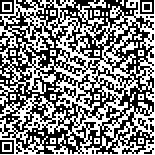|
| 引用本文: | 李雪燕,孙国华,杨建敏,刘兆存,韦秀梅,王卫军,郭婷婷.微卫星标记在刺参(Apostichopus japonicus)人工繁育中亲本识别的应用.海洋与湖沼,2013,44(5):1263-1269. |
| |
|
| |
|
|
| 本文已被:浏览 2403次 下载 2102次 |

码上扫一扫! |
|
|
| 微卫星标记在刺参(Apostichopus japonicus)人工繁育中亲本识别的应用 |
|
李雪燕1, 孙国华2, 杨建敏2, 刘兆存3, 韦秀梅2, 王卫军2, 郭婷婷1
|
|
1.上海海洋大学水产与生命学院, 山东省海洋水产研究所 山东省海洋生态修复重点实验室;2.山东省海洋水产研究所 山东省海洋生态修复重点实验室;3.东营市河口华春水产技术开发有限责任公司
|
|
| 摘要: |
| 选取8个高多态性的微卫星位点, 对240只刺参(Apostichopus japonicus)幼体和14只疑似亲本进行了亲缘关系的鉴定。通过检测, 8个微卫星位点共得到53个等位基因, 平均等位基因数为6.63; 观察杂合度在0.730—0.902; 各位点的多态信息含量为0.696—0.836。通过亲缘关系分析软件CERVUS 3.0分析, 微卫星位点累积排除概率分别为0.9934、0.9997、0.99999。基于排除法个体基因型判定, 有37个子代有1个候选亲本, 194个子代有2个及以上候选亲本; 基于似然法判定, 置信度为80%时, 有198个子代个体找到最似亲本。综合排除法和似然法的亲权鉴定, 成功为229个子代个体找到它们的亲本, 鉴定成功率达95%以上。本研究结果可为刺参育种工作中亲本识别及家系分析提供技术支持和理论依据。 |
| 关键词: 刺参 微卫星 亲权鉴定 |
| DOI:10.11693/hyhz201305020020 |
| 分类号: |
| 基金项目:山东省自然科学基金项目, ZR2011CM036号; 山东省现代农业产业技术体系刺参创新团队刺参育种岗位, 2012—2014; 海洋经济创新发展区域示范项目, 20130125号; 山东省优秀中青年科学家基金, Y231041011号。 |
| 附件 |
|
| PARENTAGE IDENTIFICATION USING MICROSATELLITE DNA IN ARTIFICIAL BREEDING OF APOSTICHOPUS JAPONICUS |
|
LI Xue-Yan1,2, SUN Guo-Hua2, YANG Jian-Min2, LIU Zhao-Cun3, WEI Xiu-Mei2, WANG Wei-Jun2, GUO Ting-Ting1,2
|
|
1.College of Fisheries and Life Science, Shanghai Ocean University;2.Shandong Marine Fisheries Research Institute, Shandong Provincial Key Laboratory of Restoration for Marine Ecology;3.Huachun Aquaculture and Technology Development Limited Liability Company of Dongying Estuary
|
| Abstract: |
| In the present study, 8 microsatellite loci were adopted for parentage identification of 240 offspring and total 14 parents in artificial breeding group of Apostichopus japonicus. The results showed that all the 8 microsatellite loci had genetic polymorphisms, the total number of alleles was 53, and the mean number of alleles was 6.63. The observed heterozygosity ranged from 0.730 to 0.902, and PIC values were 0.696—0.836. Analyzing by CERVUS 3.0, the calculate exclusion probabilities of microsatellite loci were 0.9934, 0.9997 and 0.99999. Based on Elimination method and judged by the genotypes of parents and offspring, 37 individuals had one parents and 194 individuals had two or more candidate parents. Based on Likelihood method, there were 198 individuals found the most like parents at 80 percent confidence level. Parental Identification on the results of the complementary methods, 229 individuals found their parents with 95% success rate. The results can provide technical support and theoretical basis for parentage identification in the breeding practice of A. japonicus. |
| Key words: Apostichopus japonicus, microsatellite, parentage testing |
|
|
|
|
|
